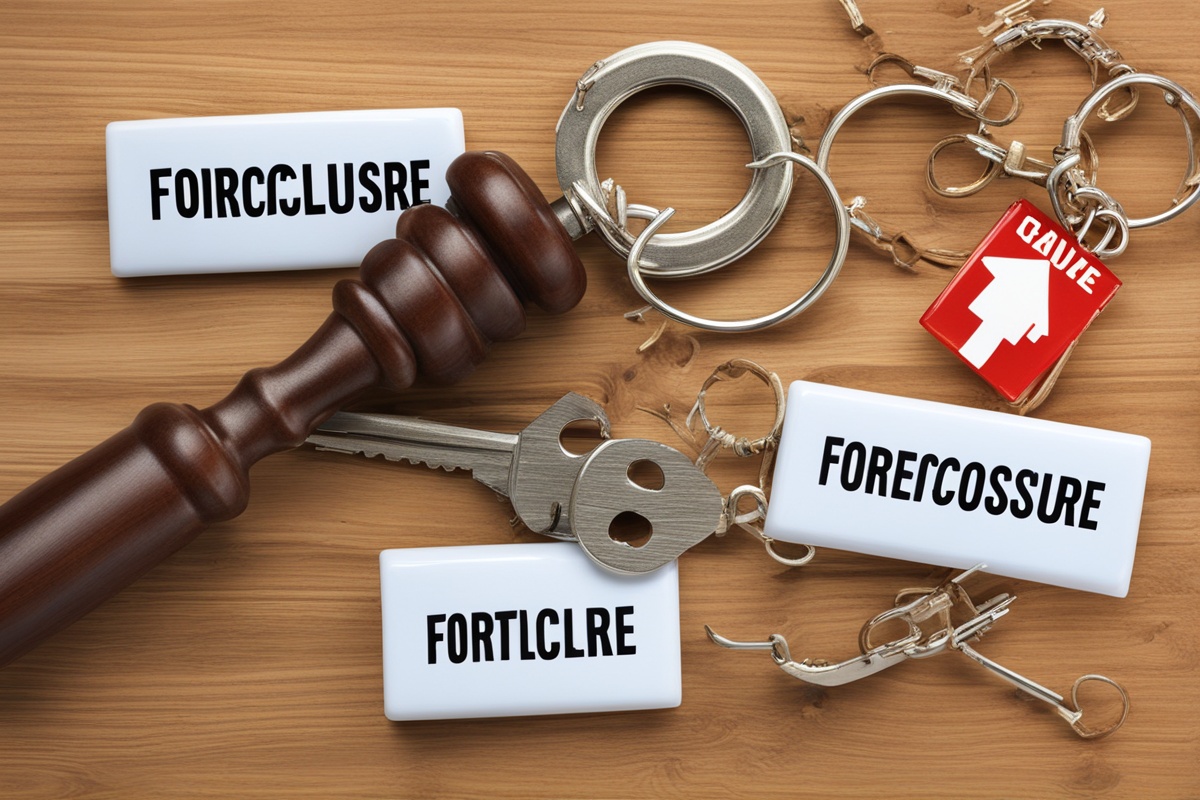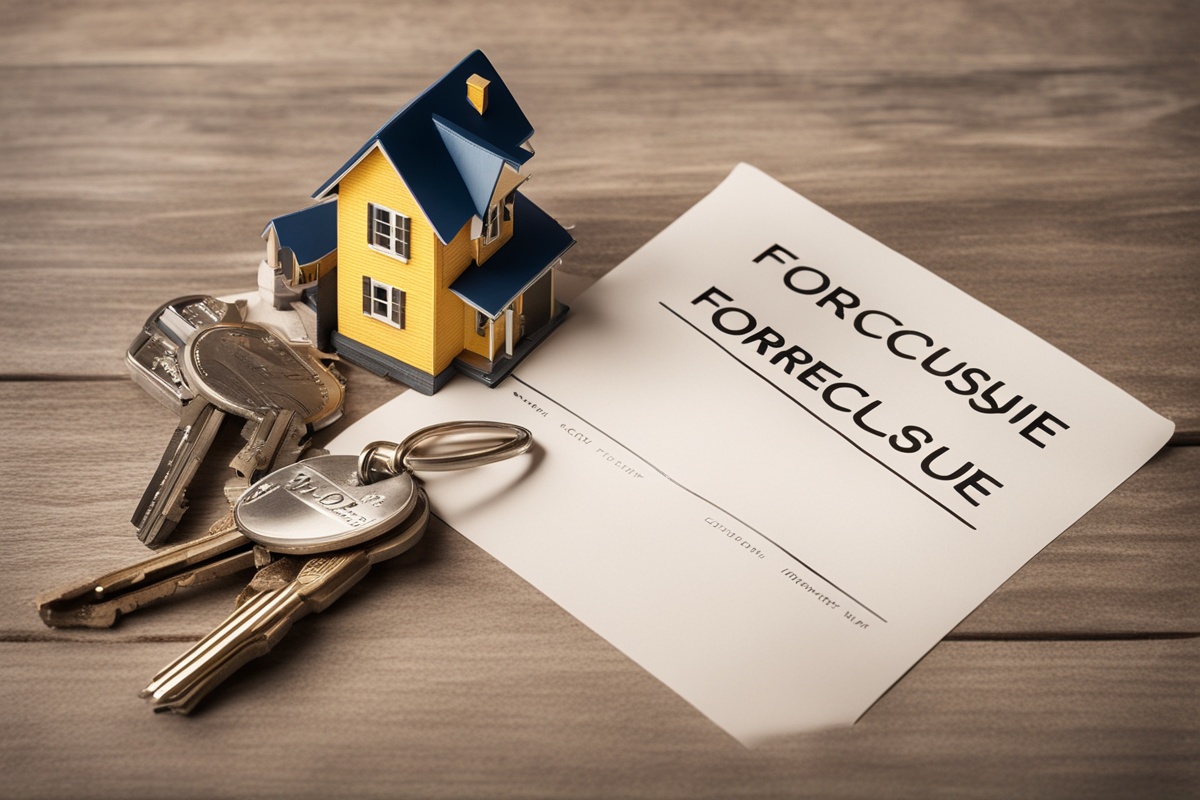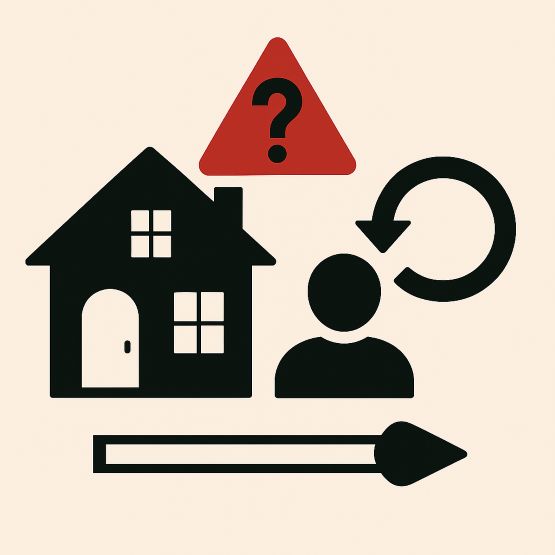If you’re facing financial hardship and struggling to keep up with mortgage payments, the looming threat of foreclosure can feel overwhelming. As a homeowner, understanding your options is critical to navigating this challenging situation. This foreclosure guide is designed to break down the process of foreclosure, compare it to viable alternatives, and provide actionable advice to help you make the best decision for your circumstances. Whether you’re looking to save your home or minimize damage to your credit, we’ll explore the pros, cons, and practical steps you can take to regain control of your financial future.
What Is Foreclosure? Understanding the Basics
Foreclosure is a legal process where a lender takes possession of a property due to the homeowner’s failure to make mortgage payments. This typically happens after several missed payments, often spanning 90 to 120 days, depending on the lender and state laws. The lender may then sell the property to recover the outstanding loan balance. While foreclosure is a last resort for lenders, it can have severe consequences for homeowners, including the loss of their home and significant damage to their credit score (FICO, 2021).
The foreclosure process varies by state, with some following a judicial process (requiring court involvement) and others using a non-judicial process (handled outside of court). Regardless of the method, the emotional and financial toll can be immense. As part of this foreclosure guide, it’s important to recognize that foreclosure isn’t just a transaction—it’s a life-altering event that requires careful consideration of all available options.
The Consequences of Foreclosure: What You Need to Know
Choosing to let your home go into foreclosure can have long-lasting effects on your financial health. One of the most immediate impacts is on your credit score, which can drop by 100 to 160 points or more, depending on your starting score (Experian, 2022). This drop can linger on your credit report for up to seven years, making it difficult to secure loans, rent a home, or even land certain jobs that require credit checks.
Beyond credit damage, foreclosure can also lead to a deficiency judgment in some states. This means if the sale of your home doesn’t cover the full mortgage balance, the lender may pursue you for the remaining debt (HUD, 2020). Additionally, the emotional strain of losing a home can be profound, affecting mental health and family stability. Understanding these consequences is a key part of this foreclosure guide, as it underscores the importance of exploring alternatives before reaching this point.
Here are some of the major consequences of foreclosure:
- Credit Damage: A significant drop in your credit score, lasting up to seven years.
- Deficiency Judgments: Potential legal action for unpaid mortgage balances after the home sale.
- Emotional Stress: The loss of a home can take a toll on mental and emotional well-being.
- Future Financial Barriers: Difficulty obtaining loans or housing due to credit history.
Alternatives to Foreclosure: Exploring Your Options
Before resigning yourself to foreclosure, consider the alternatives that may allow you to keep your home or exit the situation with less damage. This foreclosure guide wouldn’t be complete without a deep dive into options like loan modification, forbearance, short sales, and deed-in-lieu of foreclosure. Each of these alternatives has its own set of benefits and drawbacks, but they often provide a less severe impact on your credit and emotional well-being compared to foreclosure.
Loan modification, for instance, involves renegotiating the terms of your mortgage to make payments more affordable, often by lowering the interest rate or extending the loan term (CFPB, 2021). Forbearance, on the other hand, temporarily pauses or reduces payments during a financial hardship, giving you time to recover. Short sales and deeds-in-lieu allow you to relinquish the property without going through the full foreclosure process, potentially preserving some of your financial standing (NAR, 2022). Let’s explore these in more detail to help you decide which path aligns with your needs.
Breaking Down Key Alternatives to Foreclosure
Navigating the maze of foreclosure prevention options can feel daunting, but breaking them down into clear, actionable choices can make the process more manageable. Below are some of the most common alternatives to foreclosure, each offering a potential lifeline depending on your situation. As a central part of this foreclosure guide, I’ll outline how these options work and who they might benefit most.
- Loan Modification: Adjusts your mortgage terms to lower payments, ideal for those with long-term financial challenges but a desire to stay in their home.
- Forbearance: Temporarily halts payments, best for short-term hardships like job loss or medical emergencies.
- Short Sale: Allows you to sell your home for less than the mortgage balance with lender approval, suitable if you can’t afford the home but want to avoid foreclosure.
- Deed-in-Lieu of Foreclosure: Transfers ownership of the home to the lender in exchange for debt forgiveness, a good option if you owe more than the home is worth.
Practical Tips for Avoiding Foreclosure
If you’re determined to avoid foreclosure, taking proactive steps can make all the difference. This foreclosure guide is packed with practical advice to help you act swiftly and strategically. Start by communicating with your lender as soon as you realize you’re struggling with payments. Many lenders are willing to work with borrowers to find a solution, especially if you demonstrate a genuine effort to resolve the issue (FHFA, 2023).
Another key step is to seek assistance from a HUD-approved housing counselor. These professionals can provide free or low-cost guidance on negotiating with lenders and exploring government programs like the Home Affordable Modification Program (HAMP). Additionally, consider cutting non-essential expenses to redirect funds toward your mortgage. Creating a strict budget or taking on a side job could provide the financial cushion you need to get back on track. The goal is to act before the situation spirals into a full foreclosure process, preserving your options and peace of mind.
How to Choose Between Foreclosure and Alternatives
Deciding whether to let your home go into foreclosure or pursue an alternative depends on several factors, including your financial situation, long-term goals, and emotional attachment to the property. This foreclosure guide encourages a thoughtful approach to this decision. Start by assessing your ability to make modified payments—can you realistically sustain a loan modification or forbearance plan? If not, a short sale or deed-in-lieu might be less damaging than a full foreclosure (Freddie Mac, 2021).
Consider consulting with a financial advisor or real estate professional to weigh the pros and cons of each option. They can provide personalized insights into how each choice will impact your credit, taxes, and future housing prospects. Ultimately, the right path is one that aligns with your priorities, whether that’s minimizing financial damage or fighting to keep your home. Remember that foreclosure is not inevitable—there are often multiple ways to navigate this challenge if you’re willing to explore them.
Wrapping up this foreclosure guide, it’s clear that facing foreclosure is a daunting prospect, but it doesn’t have to be the end of your financial story. By understanding the foreclosure process and its consequences, as well as exploring alternatives like loan modification, forbearance, short sales, and deeds-in-lieu, you can take control of your situation. The key is to act quickly, communicate openly with your lender, and seek professional guidance when needed. Whether you choose to fight for your home or strategically exit with minimal damage, the insights and tips provided here aim to empower you to make an informed decision. Remember, you’re not alone in this journey, and resources are available to help you through every step.
Studies and Surveys on Foreclosure Impacts
A 2019 study by the Urban Institute revealed that homeowners who experience foreclosure face a 20% higher likelihood of subsequent financial distress, including bankruptcy, compared to those who pursue alternatives like short sales or loan modifications (Urban Institute, 2019). The study, which analyzed data from over 10,000 households between 2008 and 2018, highlighted that foreclosure not only damages credit but also disrupts long-term wealth-building opportunities. This underscores the importance of exploring every alternative before allowing a home to enter foreclosure.
Additionally, a 2020 survey conducted by the National Association of Realtors found that 68% of homeowners who opted for a short sale reported feeling less financial stress compared to those who went through foreclosure (NAR, 2020). With a sample size of 5,000 respondents, the survey emphasized that alternatives often provide a psychological as well as financial benefit, reinforcing the value of proactive measures in mitigating the impact of mortgage default.
References
- CFPB. (2021). What is a loan modification? Consumer Financial Protection Bureau. https://www.consumerfinance.gov/ask-cfpb/what-is-a-loan-modification-en-269/
- Experian. (2022). How does foreclosure affect your credit score? https://www.experian.com/blogs/ask-experian/how-does-foreclosure-affect-credit-score/
- FHFA. (2023). foreclosure prevention options. Federal Housing Finance Agency. https://www.fhfa.gov/Homeownersbuyer/MortgageAssistance/Pages/Foreclosure-Prevention-Options.aspx
- FICO. (2021). How foreclosure impacts your credit score. https://www.myfico.com/credit-education/faq/negative-reasons/how-foreclosure-impacts-credit-score
- Freddie Mac. (2021). Alternatives to foreclosure. https://myhome.freddiemac.com/own/alternatives-to-foreclosure
- HUD. (2020). foreclosure process and deficiency judgments. U.S. Department of Housing and Urban Development. https://www.hud.gov/topics/foreclosure
- NAR. (2020). Homeowner stress survey on foreclosure and alternatives. National Association of Realtors. https://www.nar.realtor/research-and-statistics
- NAR. (2022). Short sales and foreclosure alternatives. National Association of Realtors. https://www.nar.realtor/short-sales-foreclosures
- Urban Institute. (2019). The long-term impact of foreclosure on financial stability. https://www.urban.org/research/publication/long-term-impact-foreclosure-financial-stability





